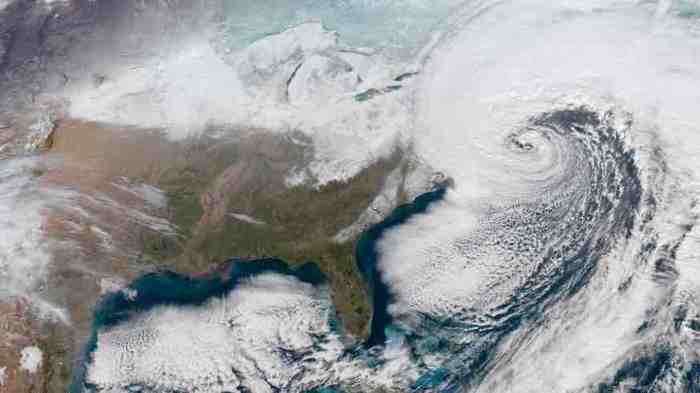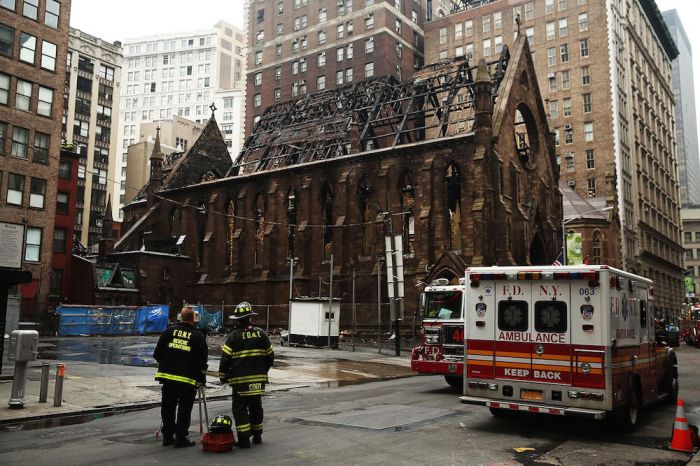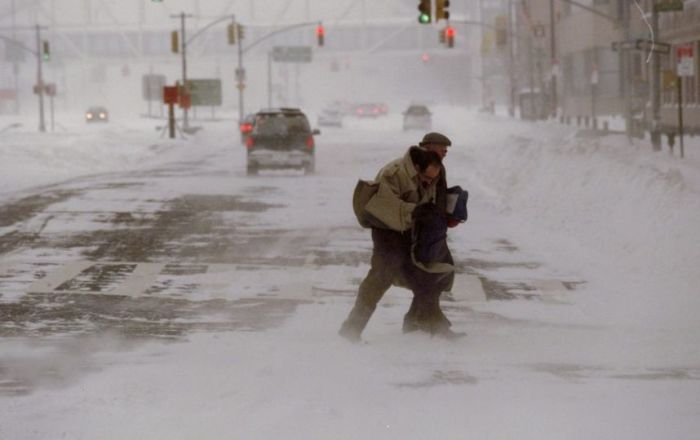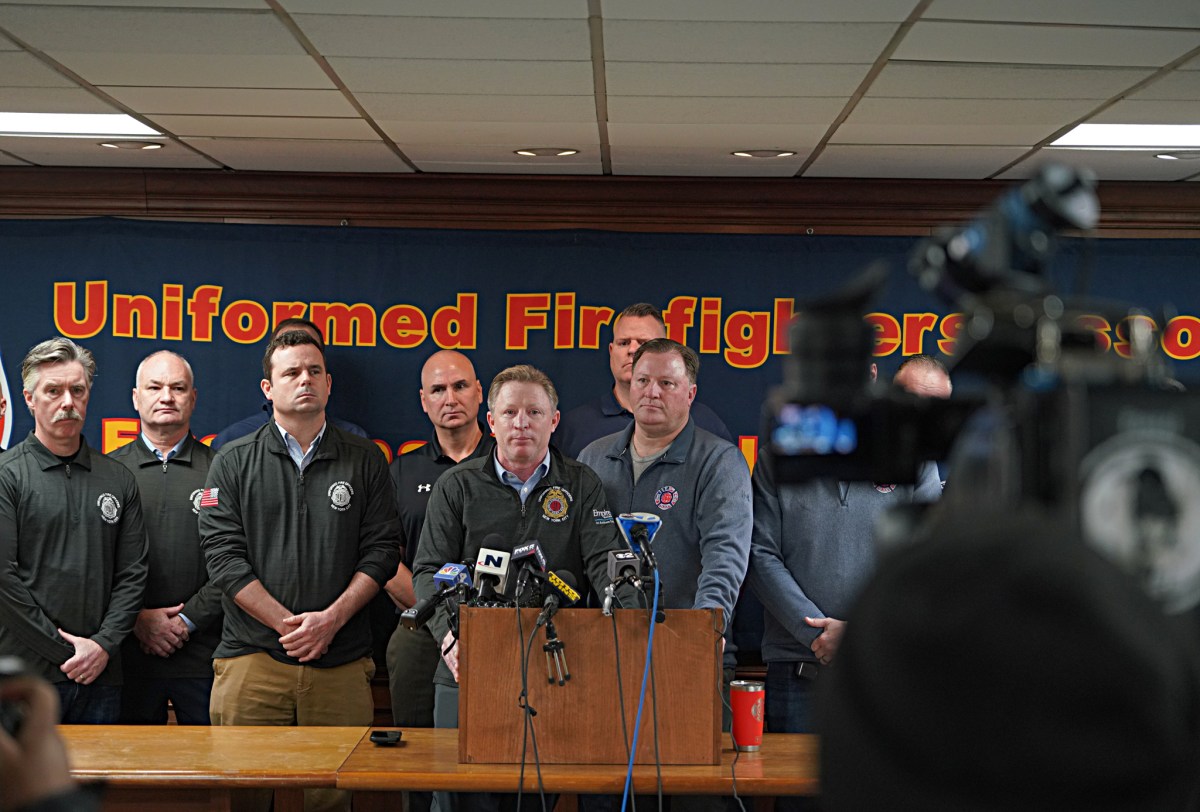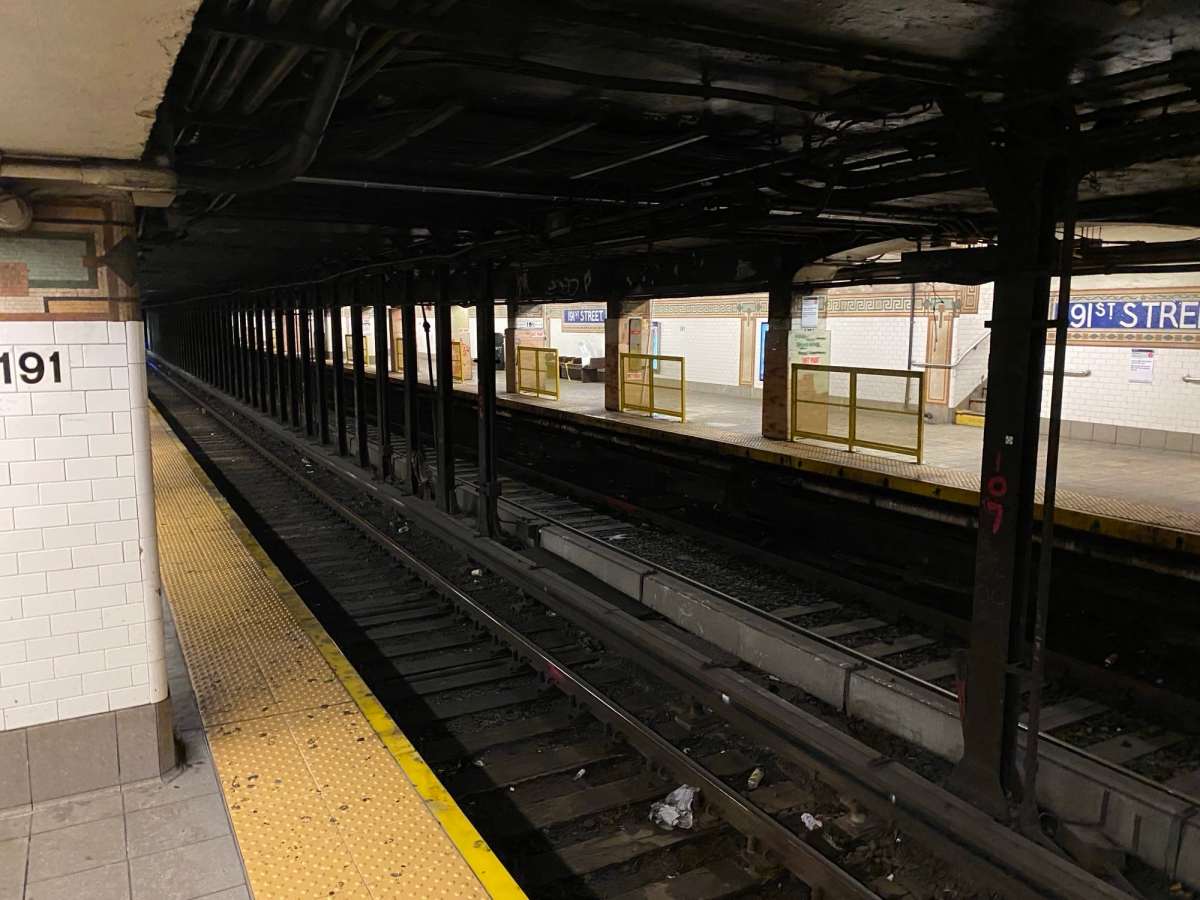With Spring allegedly heading our way in a matter of weeks, experts are warning residents to that rain or too quick a thaw could turn the city’s 100-inch snowfall into a record runoff and create an urban meltdown. “If it melts too quickly, it’s going to cause a problem, because it’s going to overflow the available storm drain systems and will cause backups into neighborhoods, and streets may be flooded,” said Joseph Ferson, a MassDEP Spokesman. “If it starts to rain on top of the snow, we can have even more severe backups. But these are worst-case scenarios,” he added.
Flooding, environmental pollution and roof collapses are all concerns for the Massachusetts Department of Environmental Protection.
“It all depends on how quickly the snow melts. There is a lot out there, no question about it,” said Ferson.
The best thing for Boston, he said, would be a slow melt, where the temperatures would rise slowly and allow the melted snow to be absorbed to soak into the ground
That will be helped by daytime temperatures approaching 40 degrees on Sunday, a significant spike compared to the recent spate of single-digit days.
For decades, MassDEP has asked communities to select snow fields and farms, upland and away from streams and bays, so that melting snow seeps slowly into the ground, recharging natural groundwater. The largest snow farm in Boston is a vacant lot in the Seaport District.
For snow that melts into the streets, salt, sand and the garbage mixed in with the mountains of snow flow into catch basins, says Greenovate Boston manager Leah Bamberger.
That’s why city officials are urging residents to help clear snow from their neighborhood basins, which can hold water until there’s room in the sewers, preventing a backup.
“There is basically nowhere for the snow melt to go other than catch basins, so we definitely ask for help clearing them,” said Bamberger. “A rapid thaw can be challenging but really, it is rain that poses the threat of flooding.” City workers are diligent about clearing the basins of debris that may be dragged into the basins, Bamberger said.
Bamberger said there are currently no plans to ditch the city’s snow in the Boston Harbor.
“The harbor is always an option in an emergency, but I know the mayor really opposes doing that unless we have no other option,” said Bamberger.
Flooding isn’t everyone’s biggest concern. Anthony Puntin, executive director of the Boston section of the American Society of Civil Engineers says he’s most worried about the city’s flat roofs. The massive amount of snow already poses a risk of roof collapses, Puntin said. Add the threat of rainfall on top of snow-piled roofs, and you could have a recipe for disaster.
“The biggest problem with this amount of snow is if we get more precipitation on top of it, causing it to get heavier and heavier,” said Puntin. “Water, believe it or not, is actually pretty heavy. When water is stuck on top of a roof – especially a flat roof – and can’t drain because it is clogged with snow, it just holds it there.” More than 100 roofs have collapsed across Massachusetts in the past two weeks.
Roof collapses in Massachusetts include a commercial plaza, daycare center, lumber retailer, and several homes and horse barns, according to the state’s emergency management agency, MEMA.
Seven horses had to be rescued from an Andover barn Sunday after its roof collapsed.
Boston can rest easy about a thaw for the next week or so, as meteorologists are predicting an arctic blast will usher in the last week of February.
Meltdown: Big Boston snowfall means a big Boston melt
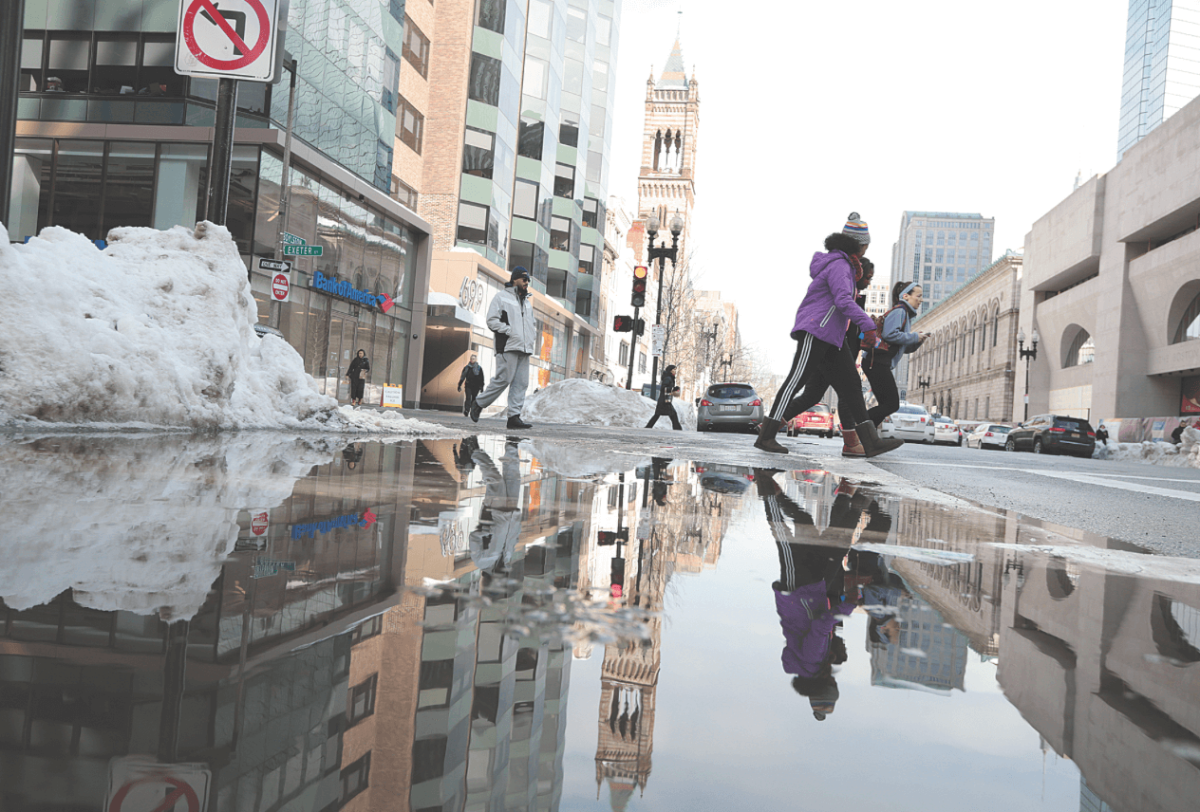
NICOLAUS CZARNECKI/METRO

